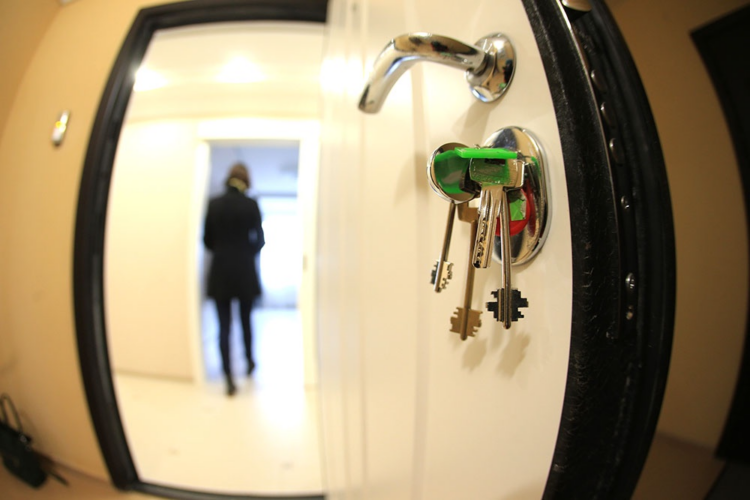The trend towards contactless rental of properties has strengthened in the daily rental market
Published: by .

The Ostrovok service calculated that in 2024, demand for apartments increased by 27% compared to 2023, and their share reached 30% of all bookings in the country. By the end of January 2025, this figure exceeded 31%. The trend towards contactless rental of apartments, which began to develop during the COVID-19 pandemic, continues to strengthen in the market.
"Among the apartments presented in our database, every third property already has the ability to check in contactlessly. Apartment owners are interested in implementing such technologies, they significantly save time and resources on checking in guests," notes Ksenia Islentyeva-Kuznetsova, head of the Apartments department of the Bronevik.com platform (part of the MTS ecosystem). In her opinion, this technology is especially relevant for those who own several apartments, because guests can check in at the same time. Moreover, according to experts from the Ostrovok service, contactless check-in allows landlords to control the rental process: it is possible to track the time of guests' arrival and departure, which simplifies property management. Apartments with an electronic lock are safe to rent out: the access code is updated after each check-out, which eliminates the possibility of repeated access to the apartment.
Apartments with electronic locks are safe to rent: the access code is updated after each eviction
"For tourists, the main convenience is that they do not depend on a meeting with the manager and are free to choose the time of check-in. Also, for many, it is important that there is no need for personal contact with the owner of the accommodation," Islentyeva-Kuznetsova emphasized.
According to Ostrovok, the popularity of apartments among tourists is explained by the larger area of this format compared to hotel rooms, the presence of several rooms and a kitchen, which makes them attractive for families and large groups, while allowing them to save on food during the trip.
However, contactless renting of apartments has its drawbacks. As civil lawyer Alla Georgieva notes, the problem is the uncertainty of the list of property in the apartment. "Even if a contract or offer lists what is in the apartment, it will still not be enough," the expert explains. With contactless check-in, the owner risks his property, since even installing video cameras at the entrance and exit can only record the fact of removal of things, but will not help prove, for example, a breakdown of household appliances or furniture.
Tenants are also at risk. According to Georgieva, there is a risk of non-return of the deposit: "The owner can indicate that something is missing. In this case, the deposit may not be returned." The situation becomes especially problematic when the tenant discovers damage upon moving in, but does not document it. "For example, the tenant sees a broken door upon moving in, but does not inform the owner or send a photo. The owner may well refer to the fact that the door was broken by the tenant, and the deposit will not be returned," the expert says.
Andrey Moiseyev, PhD in Law, Associate Professor of the Department of Civil Law Disciplines at the Plekhanov Russian University of Economics, draws attention to a more serious legal dilemma. "On the one hand, Article 30 of the Housing Code allows renting out an apartment (even for a short period of time), but on the other hand, it prohibits using residential premises to provide hotel services (Article 17)," the expert explains. In practice, there are many cases where housing inspectorates or prosecutors file lawsuits to terminate the provision of such services, and the Code of Administrative Offenses provides for liability for violating these provisions (Article 7.21).
The situation is complicated by the lack of clear criteria for distinguishing between short-term rentals and hotel services. According to the expert, one should try not to create inconveniences that "exceed the normal intensity of use of housing in an apartment building."
As reported by Ostrovok, apartments have become most popular in the Kaliningrad region, where they account for 58% of all bookings, in the Republic of Tatarstan (44%) and in the Republic of Bashkortostan (40%).
At the same time, according to the Bronevik.com platform, the leading cities are Moscow (18% of all bookings in Russia), St. Petersburg (9%), Kazan (4%) and Krasnodar (4%). The average cost of living in apartments in 2024 was 3,200 rubles per night. Despite the increase in demand, prices for daily rent grew more slowly than in hotels – 14% versus 21% year-on-year.
Landlords' experience shows that guests' attitudes toward contactless check-in vary. "Many guests don't like contactless check-in. They want to see the owner of the apartment in person. Others, on the contrary, welcome it," Anna, who rents out apartments in Minsk, shares her experience.
At the same time, technically contactless check-in is implemented in two main ways, experts from the Bronevik.com platform explained. Using electronic code locks controlled via a mobile application or via keyboxes – small metal safes where keys are stored, with a code lock next to the entrance to the apartment.
Comments